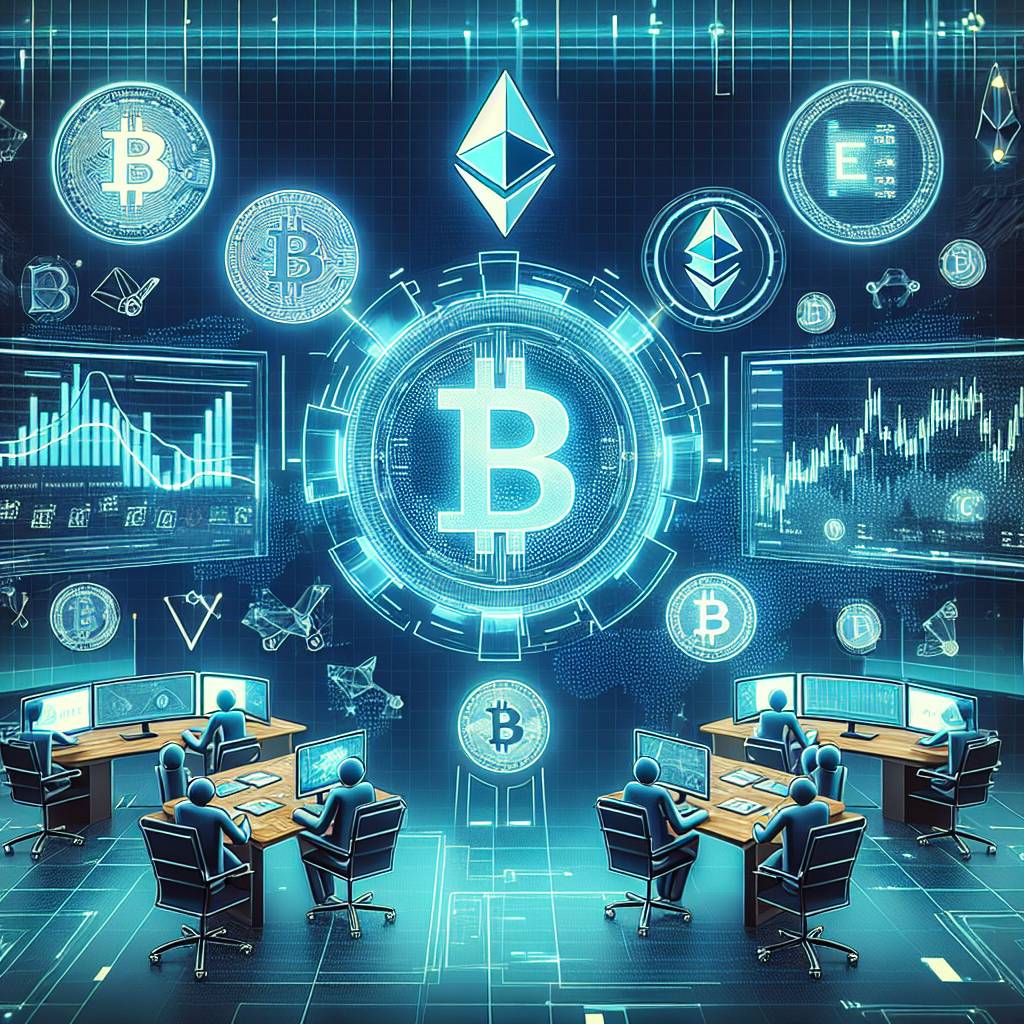How do forward contracts and future contracts differ in the world of digital currencies?
Can you explain the differences between forward contracts and future contracts in the context of digital currencies? How do these two types of contracts function and what are their main distinctions?

5 answers
- Forward contracts and future contracts are both financial agreements that allow individuals or entities to buy or sell digital currencies at a predetermined price and date in the future. However, there are several key differences between the two. Forward contracts are private agreements between two parties, where they agree to buy or sell a specific amount of a digital currency at a specific price on a specific future date. These contracts are not standardized and can be customized to meet the specific needs of the parties involved. They are typically traded over-the-counter (OTC) and are not regulated by an exchange. The settlement of a forward contract occurs at the end of the contract period. On the other hand, future contracts are standardized agreements that are traded on regulated exchanges. These contracts specify the quantity, price, and delivery date of the digital currency being traded. Unlike forward contracts, futures contracts are marked-to-market daily, meaning that the gains or losses are settled daily. This requires the parties to post margin to cover potential losses. Futures contracts provide more liquidity and transparency compared to forward contracts. In summary, forward contracts are customizable, private agreements that are settled at the end of the contract period, while futures contracts are standardized, exchange-traded agreements that are marked-to-market daily. Both types of contracts serve different purposes and cater to different needs in the world of digital currencies.
 Dec 25, 2021 · 3 years ago
Dec 25, 2021 · 3 years ago - Forward contracts and future contracts in the world of digital currencies are like two siblings with distinct personalities. While they share similarities, they have their own unique characteristics. Forward contracts are like the rebel sibling who prefers to do things their own way. These contracts are private agreements between two parties, allowing them to buy or sell digital currencies at a predetermined price and date in the future. The terms of the contract can be customized to suit the parties' needs, making them flexible but less regulated. They are traded over-the-counter (OTC) and settled at the end of the contract period. On the other hand, future contracts are the responsible sibling who follows the rules. These contracts are standardized agreements traded on regulated exchanges. They specify the quantity, price, and delivery date of the digital currency being traded. Unlike forward contracts, futures contracts are marked-to-market daily, meaning that gains or losses are settled daily. This requires the parties to maintain margin accounts to cover potential losses. Futures contracts offer more liquidity and transparency compared to forward contracts. In conclusion, forward contracts and future contracts differ in terms of customization, regulation, settlement, and liquidity. Whether you prefer the rebel or the responsible sibling, both types of contracts play important roles in the world of digital currencies.
 Dec 25, 2021 · 3 years ago
Dec 25, 2021 · 3 years ago - Forward contracts and future contracts are two different beasts in the world of digital currencies. Let me break it down for you. Forward contracts are like the wild west of trading. They are private agreements between two parties, allowing them to buy or sell digital currencies at a specific price and date in the future. These contracts are highly customizable and can be tailored to fit the needs of the parties involved. However, they are not regulated by an exchange and are traded over-the-counter (OTC). The settlement of a forward contract occurs at the end of the contract period. On the other hand, future contracts are the law-abiding citizens of the trading world. They are standardized agreements that are traded on regulated exchanges. These contracts specify the quantity, price, and delivery date of the digital currency being traded. Unlike forward contracts, futures contracts are marked-to-market daily, meaning that gains or losses are settled daily. This requires the parties to maintain margin accounts to cover potential losses. Futures contracts offer more liquidity and transparency compared to forward contracts. To sum it up, forward contracts are like the wild west, while future contracts are the law-abiding citizens. Both have their own advantages and cater to different trading needs in the world of digital currencies.
 Dec 25, 2021 · 3 years ago
Dec 25, 2021 · 3 years ago - Forward contracts and future contracts are two different animals in the world of digital currencies. Let's dive into the details. Forward contracts are like a secret handshake between two parties. They are private agreements that allow individuals or entities to buy or sell digital currencies at a predetermined price and date in the future. These contracts are highly customizable and can be tailored to meet the specific needs of the parties involved. They are traded over-the-counter (OTC) and are not regulated by an exchange. The settlement of a forward contract occurs at the end of the contract period. In contrast, future contracts are like a well-organized party. They are standardized agreements that are traded on regulated exchanges. These contracts specify the quantity, price, and delivery date of the digital currency being traded. Unlike forward contracts, futures contracts are marked-to-market daily, meaning that gains or losses are settled daily. This requires the parties to maintain margin accounts to cover potential losses. Futures contracts provide more liquidity and transparency compared to forward contracts. In a nutshell, forward contracts are like a secret handshake, while future contracts are like a well-organized party. Both have their own advantages and serve different purposes in the world of digital currencies.
 Dec 25, 2021 · 3 years ago
Dec 25, 2021 · 3 years ago - Forward contracts and future contracts are two different sides of the same coin in the world of digital currencies. Let's explore their differences. Forward contracts are like a private dance between two parties. They are customized agreements that allow individuals or entities to buy or sell digital currencies at a specific price and date in the future. These contracts are not standardized and can be tailored to meet the specific needs of the parties involved. They are traded over-the-counter (OTC) and are not regulated by an exchange. The settlement of a forward contract occurs at the end of the contract period. On the other hand, future contracts are like a grand ballroom dance. They are standardized agreements that are traded on regulated exchanges. These contracts specify the quantity, price, and delivery date of the digital currency being traded. Unlike forward contracts, futures contracts are marked-to-market daily, meaning that gains or losses are settled daily. This requires the parties to maintain margin accounts to cover potential losses. Futures contracts provide more liquidity and transparency compared to forward contracts. To sum it up, forward contracts are like a private dance, while future contracts are like a grand ballroom dance. Both have their own charm and cater to different trading preferences in the world of digital currencies.
 Dec 25, 2021 · 3 years ago
Dec 25, 2021 · 3 years ago
Related Tags
Hot Questions
- 96
What are the advantages of using cryptocurrency for online transactions?
- 88
What are the tax implications of using cryptocurrency?
- 75
What is the future of blockchain technology?
- 66
Are there any special tax rules for crypto investors?
- 50
How can I protect my digital assets from hackers?
- 48
How can I buy Bitcoin with a credit card?
- 25
How can I minimize my tax liability when dealing with cryptocurrencies?
- 25
What are the best digital currencies to invest in right now?
